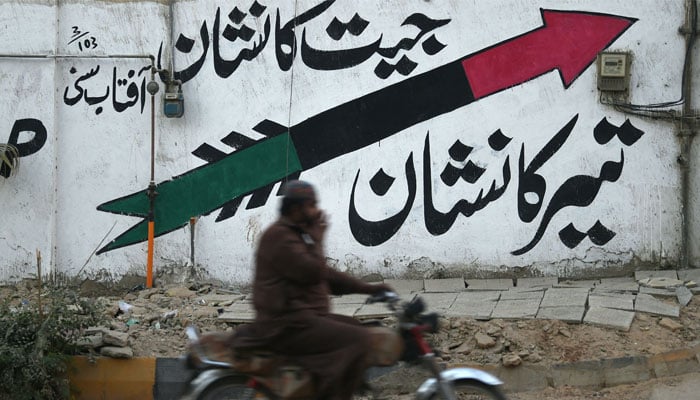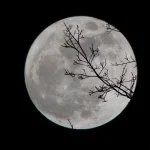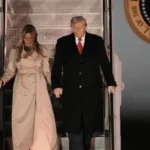KARACHI: In the upcoming elections, independent candidates might well be the surprise weapon that all factions are vying for. Although PPP Chairman Bilawal Bhutto-Zardari has stated that he would rather see independent candidates form a government, the PPP may not be the only party that feels this way. Independent candidates appear to be gaining ground on political parties, according to political analysts as well.
It is estimated that there would be 3,200 independent candidates running in the 2024 elections, not counting the PTI candidates and other independents. In addition to the customary pool of independent candidates, PTI-affiliated candidates will be the majority of independent candidates in the upcoming elections.
The PTI’s candidates will run as independents in the next elections after the party lost both its unity and its “bat” emblem.
Even if 20–30 of the 234 PTI-affiliated candidates who are scheduled to run in the elections are successful, it would still create a formidable bloc of parliamentarians. This also means that the “defection clause” of Article 63A of the constitution, which the Supreme Court of Pakistan interpreted in a 3-2 ruling in May 2022 as guaranteeing that the votes of dissident members of parliament who vote against the wishes of their parliamentary party will not be counted, will not apply to these former PTI members.
Now with Article 63A out of the way for the PTI-affiliated independent candidates, the theory is that they can be persuaded, tempted, or otherwise to vote for or join any other party if they win and join parliament.
After an independent member joins parliament, how would this operate? Independents have three days after being elected in to “join a political party,” according to journalist and subject matter expert Amir Wasim. As required by law.
The phrase “total number of general seats won by political party” shall include the independent returning candidate or candidates who may lawfully join such political party within three days of the publication in the official Gazette of the Election Rules, 2017,” states Rule 92(6) of the Regulations.
Independents, however, are not limited to being so. If after three days they don’t join a party, they remain independent members. “Independents don’t have to join a party and can stay and be known as independents,” analyst Aasiya Riaz tells The News. The hitch is that they are free to vote whichever they like. Without a parent party, PTI independents will be more susceptible to pressure and persuasion and free to vote however they see fit on any legislation or subject.
Similar sentiments are expressed by Wasim, who notes that here’s where it gets tricky: “Those independents who don’t join a party will have five years to negotiate and blackmail in return for their support.”
PTI President Ahmed Bilal Mehboob had previously stated as much in a statement to The News, following the PTI’s removal of its bat symbol. He further stated that PTI “affiliates elected to an assembly as independent candidates may decide to form a parliamentary group in an assembly but no party discipline will apply to them.” They may vote for Nawaz Sharif or any other candidate for PM.”
It should be emphasized that all legislative elections, with the exception of the PM and CM elections, are conducted by secret ballot. This would make it simple for an independent member of parliament to vote for Party A’s Mr. X as prime minister and Party B’s Mr. Y as speaker of the National Assembly (by secret ballot).
This is a concern that has also been expressed by PTI leaders like Gohar Khan, who has stated publicly that there is a “50-50” likelihood that candidates linked with the PTI may run under its name but then “defect” to another party after the election. As a result, there is concern that the PTI won’t be able to do anything to prevent its affiliates from forming partnerships after they are elected. Independents won’t be subject to any legal constraints if they don’t have to worry about being disciplined for crossing the floor.
We did get a taste of just how much problems “dissident” party members may cause, even from within a party, in the recently concluded parliament, which was presided over by the PDM government.
Recalling how PTI dissidents were able to vote against the party, Amir Wasim says that the party was powerless to stop them, even though Imran Khan wasn’t even imprisoned at the time. What will the PTI be able to do about the independents who now win elections and get into parliament? Officially, they will be referred to as independents even if they form a PTI group in parliament.
Independents also have the choice to abstain from voting for the PM or speaker. They have the freedom to do so, but Wasim believes that when it comes time to cast ballots, “you will see most of the independent winners voting.” He claims that the administration is offering these MPs several incentives, such as parliamentary secretary and committees.
The News is informed by journalist and election analyst Suhail Warraich that “conflict” is the key word for “our strategists right now [in strategy and approach to the electoral process].” They want the PTI to lose because of this disarray, and they also want those who win to be able to quickly exit the party. This is how it currently appears.
Like many others in the media and among political analysts, Warraich appears to believe that the independent candidates have greater clout than previously believed. Indeed, he continues, the PTI’s victorious independents can create “a PTI loyalist group and stay within parliament like that.” Particularly those who live in cities and are unwilling to leave the PTI.Warraich had previously observed in a Jang editorial that the 2024 election appears to be a “festival of independents” rather than a political party contest, suggesting that political parties “have been left behind.” He issued a warning, saying that the state’s new approach will cause independent politicians to lose their party discipline and their ideological culture. Warraich claims that the idea is that handling independent members will be simpler.







